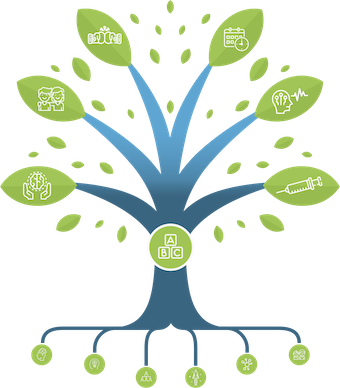Migraine in School
What is the effect of migraine on school activities?
Migraine is common in children and adolescents as well as university students. Before puberty, 10% of children, boys and girls equally, have migraine. Disabling and frequent migraine attacks can have an impact on the quality of life and ability to learn.
What are the symptoms of migraine which could affect your school performance?
The following symptoms could affect your school performance
- Severe and disabling painful attacks
- Intolerance to physical effort
- Light and sound sensitivity
- Nausea and vomiting
- Lightheadedness or dizziness
- Feeling “foggy” and slowed thinking
- Feeling tired and “out of it”
- Poor focus and difficulty to concentrate
- Aura: loss of vision, sometimes ability to speak (LINKIN 106)
School staff seem to doubt that migraine can have an impact on school. Why?
Remember: migraine is a real problem caused by a special brain, just like asthma is a problem caused by a special lung. Bring information on migraine to the school staff so they can understand what migraine is and help you.
Unfortunately, many people don’t know much about migraine and may judge people suffering from it. Students might not seek help because they think that nobody can help them. If they do seek help, they may be told that “it’s just a headache” or “it is normal to have headaches”. They may also be told that “they use the headaches to avoid school.” Students who have migraine and their parents often report that nobody in school understands how it feels to have migraine. Accommodations in school are not easy to get and many end up struggling on their own. Don’t be discouraged. Take action!
I feel anxious that a migraine will occur. Is this normal?
Migraine attacks can make you miss an exam, miss a deadline, or make it difficult to focus in class or attend social activities. If this has happened to you already, it is normal to fear that it will happen again. It may also be difficult and frustrating having to catch up because a migraine slowed you down. Remember that finding ways to calm anxiety can make living with migraine easier and even improve your symptoms. (See this post)
What do I do if a migraine attack starts in school?
Here are the steps to follow to be able to treat your migraine attack:
- See your doctor, and get a prescription
- Learn about the medication, what it is and how much you can use
- Discuss with the school staff to get the authorization to take your medication when you need it. It is a good idea to carry information about the medication as well.
- If an attack starts, take the medication as early as possible (LINKIN Treating early).
- Check if it is possible for you to rest in a quiet and dark room during the attack, and drink water if needed.
- If you have different types of migraine, some more severe, determine when it’s necessary to contact your parents.
Some schools will allow you to keep migraine medications in school or with you but some schools which require a physician’s note to allow a school staff to give the medication to you. Ask your doctor to help you.
Can I request an accommodation for migraine to the school staff or teachers?
You or your parents should arrange a meeting with your teacher and school staff to discuss your condition. You could discuss with them what kind of accommodations you would need to improve your learning. Here are examples:
- Modified school day
- Extended periods of time for tests
- Flexibility in terms of deadlines
- Access to lesson plans and assignments that were missed due to absences
- Access to a dark and quiet space during an attack in school
- Access to guidance counsellor or social worker to help you with stress management and help re-integrate you back to school if you missed a significant number of school days due to your headaches
You could request a letter from your family doctor to help you explain what migraine is and the accommodations you need during your migraine attacks. If you are a university student, you may need specific forms, for example from your college or university’s Accessibility Services unit.
These accommodations will help you cope with troublesome migraine attacks and improve your learning experience in school. The priority should be to allow you to progress in school.
Your health team and school can help you manage your health to complete your learning and graduate successfully.
REFERENCES
Gelfand AA. Migraine and childhood periodic syndromes in children and adolescents. Curr Opin Neurol. 2013;26(3):262-8.
Post#1105
Categories
THE MIGRAINE TREE
- BRANCHES
- ACUTE TREATMENTS
- DEVICES AND NEUROMULATIOIN
- PREVENTIVE TREATMENTS
- PROCEDURES AND INJECTIONS
- SELF-CARE AND LIFESTYLE
- SOCIAL LIFE
- TRUNK
- ROOTS
OTHER CATEGORIES




